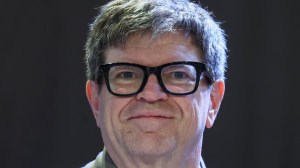The loss of confidence
Business reputation has suffered many blows in the last two decades. The collapse of Enron in 2001 was symbolic of a decade of excess in the 1990s; the revelation of the company’s frauds demonstrated the scale of hubris that characterised the heady years of ‘the new economy’. Other collapses occurred at that time: cable operator Adelphia Communications failed after being looted by its chief executive, John Rigas; at telecoms business WorldCom, former basketball coach Bernie Ebbers’s defence that he had little grasp of what was going on may have had more truth than the court acknowledged in sentencing him to twenty-five years’ imprisonment.
The financial crisis of 2008 had an impact on public confidence which continues; executives were exposed not only as greedy and corrupt but also as lacking the fundamental skills needed to run successful financial services businesses. In contrast to the earlier jailing of Rigas, Ebbers and Enron’s CEO Jeff Skilling, only very junior individuals found themselves in prison after the global financial crisis. Some more recent scandals have led to criminal charges against executives responsible. Volkswagen had falsified data on emissions from its cars, and Wells Fargo created 2 million bogus customer accounts. Silicon Valley celebrity Elizabeth Holmes attracted luminaries to her board. She achieved adulation in US business magazines and a $10 billion valuation for her company before it was revealed that the blood-testing product she was promoting did not exist. In 2022 she was convicted—not for misleading patients but for misleading investors— and sentenced to eleven years in prison.
But many perpetrators of egregious behaviour have remained within the law. The elaborate artificial tax avoidance schemes that have become commonplace among large multinational companies attract increasing public attention. And the widening gap between the remuneration of chief executives and the earnings of ordinary workers has caused broad concern. Some of these billionaire executives are no superstars: individuals such as Philip Green, who extracted nine-figure sums from retailer BHS before selling the company to multiple bankrupt Dominic Chappell for £1, Mike Ashley, the domineering boss of the retailer Sports Direct, and Eddie Lampert, who inflicted similar destruction on Sears, for a century America’s leading store chain. The lifestyle of these executives contrasts with the fate of their businesses. The 90-metre yachts of Green and Lampert make good newspaper pictures. Green’s is moored in the harbour of the tax haven of Monaco, where he is resident, while Lampert’s is named Fountainhead, after Ayn Rand’s turgid paean to individualism.
And then the poster children of the internet world became the companies everyone loved to hate. Google’s slogan ‘Don’t be evil’ was ridiculed and replaced by the motto ‘Do the right thing’, itself quietly dropped not long afterwards. Lina Khan’s essay excoriating Amazon, published in 2017 while she was still a student at Yale Law School, received wide attention and in 2021 President Biden nominated her as Chair of the Federal Trade Commission. Mark Zuckerberg— still resembling the Harvard student who had launched Facebook from his dorm— became a reviled figure. For Adrienne LaFrance, no demagogue but the editor of the respected Atlantic magazine, Facebook was ‘an entity engaged in a cold war with the United States and other democracies’, ‘a lie-disseminating instrument of civilisational collapse’.
The successful businesses that define the modern economy are not well regarded, especially by the young people who are often the most committed users of their products. In 2022, 40 per cent of adult Americans under the age of thirty felt positively about capitalism; but slightly more—44 per cent—felt positively about socialism. (The poll allowed respondents to approve of both capitalism and socialism. Among those over sixty-five, capitalism was far ahead.) Of course, this finding leaves open what respondents to the poll understood by ‘socialism’—the term has been construed very differently by Lenin, Xi Jinping and Bernie Sanders.
Or what respondents understood by ‘capitalism’. In his 1946 essay, Politics and the English Language, George Orwell observed that ‘The word Fascism has now no meaning except in so far as it signifies “something not desirable”.’ Orwell continued: ‘It is almost universally felt that when we call a country democratic we are praising it: consequently the defenders of every kind of régime claim that it is a democracy.’ (This heuristic remains valid today: the regime over which Kim Jong-Un presides styles itself the Democratic People’s Republic of Korea; cynics have observed that every word except ‘of’ is misleading.)
Something similar has happened to the word ‘capitalism’; it has become a term of disapproval, or more rarely approbation, without more specific content. Mostly ‘capitalism’ is something that the speaker blames for an outcome that he or she dislikes. In the words of journalist Annie Lowrey, ‘“late capitalism” became a catchall for incidents that capture the tragicomic inanity and inequity of contemporary capitalism. Nordstrom selling jeans with fake mud on them for $425. Prisoners’ phone calls costing $14 a minute. Starbucks forcing baristas to write “Come Together” on cups.’ More seriously, popular critical discourse emphasises the connection between capitalism’ and ‘inequality’, usually without defining either of these complex and ambiguous terms or explaining the relationship between them.
Love the product, hate the producer
And yet… Boeing created the modern civil aviation market, bringing affordable travel to millions of people worldwide. Every day people step off a Boeing plane to begin their holidays, attend a business meeting or reunite with friends and relatives. Both Facebook and Google have over 2 billion active users—far more customers than any other companies in world history.
In the three centuries since the beginning of the Industrial Revolution business has created previously unimaginable comfort and prosperity for much of the world’s population. People trust their employer more than they trust the government, although in the US only Congress is trusted less than big business. Americans regard small business as highly trustworthy. Most readers of this book will recently have met employees who really did put the client’s interests first: the helpful shop assistant, the reassuring flight attendant, the devoted nurse or doctor, perhaps even a financial adviser who took time to understand the particular needs of the client.
About 6 million businesses are registered in the UK and over 30 million in the United States. The vast majority of these businesses employ fewer than five people. Typically, they are convenience stores, plumbers and electricians, community lawyers and physicians. Of course, some plumbers are more competent than others, but the trade they all practise is much the same, and they are mainly distinguished from each other by the location in which they operate.
This book is not about these microbusinesses, essential though they are to modern economies. This book is about Goldman Sachs and Boeing, Merck and Pfizer, Google and Apple. These are businesses with distinctive combinations of capabilities that have enabled them to scale their operations, operate globally and employ thousands or tens of thousands of people. Businesses that add value as organisations to the talents of the individuals who work in them. Businesses whose activities impinge on the everyday lives of millions and influence the politics and societies in which they operate.
Excerpted with permission from ‘The Corporation in the 21st Century’ by John Kay, published by Profile Books







